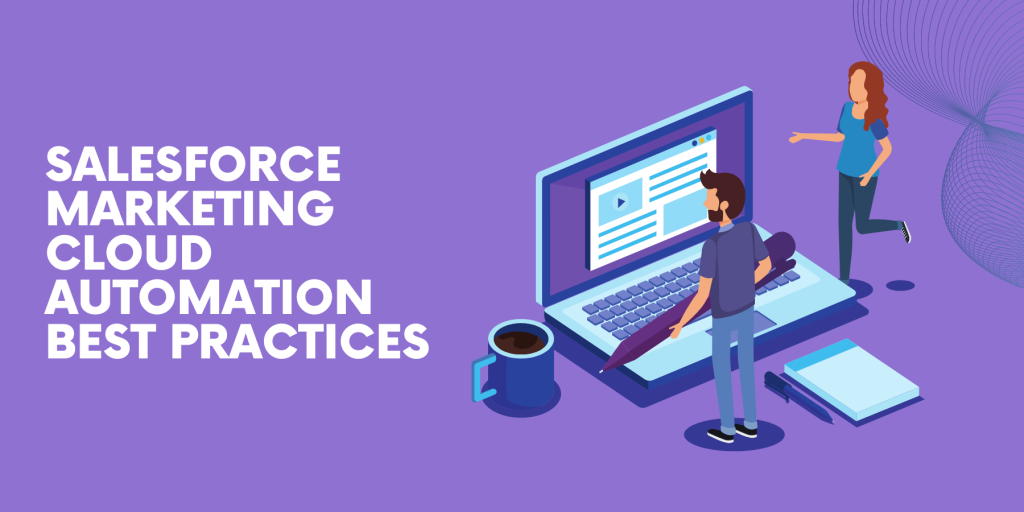Salesforce Marketing Cloud Automation
What if I told you that the future of marketing lies not in the creativity of your campaigns but in the precision and efficiency of your automation? Salesforce Marketing Cloud Automation is revolutionizing the marketing landscape by allowing businesses to automate complex marketing processes with unprecedented ease. This bold claim might challenge the traditional belief that human ingenuity is the core of successful marketing. However, in the era of big data and AI, automation is proving to be the game-changer that can enhance, rather than replace, human creativity.
Salesforce Marketing Cloud Automation provides a robust set of tools designed to streamline and enhance your marketing efforts. It allows marketers to create sophisticated, automated workflows that can handle everything from lead nurturing to multi-channel campaigns. By leveraging the power of Salesforce Marketing Cloud Automation, businesses can ensure that their marketing strategies are not only efficient but also highly effective in engaging their target audience.
The Core Components of Salesforce Marketing Cloud Automation
1. Automation Studio
At the heart of Salesforce Marketing Cloud Automation lies Automation Studio. This powerful tool enables marketers to build and automate a wide range of marketing processes. From sending personalized emails to segmenting customer data, Automation Studio is the command center for your automated marketing activities. It allows you to create multi-step workflows that can be triggered by specific customer actions or events.
2. Journey Builder
Journey Builder takes Salesforce Automation to the next level by allowing you to design and automate customer journeys. With Journey Builder, you can create personalized experiences that guide customers through a series of interactions based on their behavior and preferences. This ensures that every customer receives relevant and timely communications, enhancing their overall experience with your brand. For more insights into crafting effective customer journeys, you might explore Salesforce Marketing Cloud Mobile Connect.
Benefits of Salesforce Marketing Cloud Automation

1. Enhanced Efficiency
One of the primary benefits of Salesforce Marketing Cloud Automation is enhanced efficiency. By automating repetitive tasks, marketers can focus on more strategic activities, such as analyzing campaign performance and refining marketing strategies. Automation also ensures that campaigns are executed flawlessly, reducing the risk of human error.
2. Improved Personalization
3. Real-Time Engagement
In today’s fast-paced digital world, real-time engagement is crucial. Salesforce Marketing Cloud Automation enables you to interact with customers in real-time, responding to their actions and behaviors as they happen. This ensures that your messages are timely and relevant, increasing the chances of engagement.
Practical Applications of Salesforce Marketing Cloud Automation
1. Lead Nurturing
Salesforce Marketing Cloud Automation is particularly effective for lead nurturing. By automating the lead nurturing process, you can ensure that prospects receive the right information at the right time, guiding them through the sales funnel. This not only improves conversion rates but also enhances the overall customer experience.
2. Multi-Channel Campaigns
Salesforce Marketing Cloud Email Automation Best Practices:

1. Segmentation Excellence
(a) Define Targeted Audiences:
- Utilizing Segmentation Capabilities: Salesforce Marketing Cloud’s segmentation capabilities enable marketers to categorize their audience based on various criteria, such as demographics, behavior, or engagement history. This involves strategically grouping contacts into segments with similar characteristics or behaviors.
- Demographic Segmentation: Marketers can define target audiences based on demographic information like age, location, or industry. This ensures that marketing messages are tailored to the specific attributes of each group, enhancing relevance.
- Behavioral Segmentation: Leveraging customer behavior data, such as past interactions or purchase history, allows for creating segments with similar interests or preferences. This targeted approach ensures that content resonates with the specific needs of each segment.
(b) Dynamic Segmentation:
- Continuous Updates: Dynamic segmentation in Marketing Cloud ensures that audience lists are continually updated in real time. This responsiveness to changes in customer behavior allows marketers to maintain the relevance of their campaigns.
- Triggered Updates: Automation triggers can be set up to automatically update segments based on specific customer actions or predefined events. This ensures the segmentation remains current and aligned with the latest customer interactions.
- Personalized Experiences: Dynamic segmentation creates personalized customer experiences by tailoring marketing messages to recent customer behaviors and preferences.
2. Personalization Precision
(a) Dynamic Content:
- Enhancing Personalization: Dynamic content features in Marketing Cloud enable marketers to go beyond generic messages by tailoring email campaigns based on individual customer preferences. This involves creating content variations that automatically adapt to the recipient’s characteristics or behavior.
- Variable Content Blocks: Marketers can use dynamic content to create variable content blocks within an email. These blocks can display different images, text, or offers based on specific criteria, ensuring recipients a more personalized and engaging experience.
- Optimizing Engagement: Dynamic content increases engagement by presenting content that resonates with each recipient’s preferences. It encourages interaction with the email, leading to higher conversion rates.
(b) Personalization Strings:
- Tailored Approaches: Personalization strings are placeholders within email content that dynamically insert recipient-specific details, such as names or purchase history. This creates a tailored approach that makes each email personalized and relevant to the recipient.
- Customizing Greetings: For example, using personalization strings in the email greeting allows marketers to address recipients by their first names, creating more intimate and engaging communication.
- Improved Customer Connection: Incorporating personalization strings enhances the visual appeal of emails and fosters a sense of connection with the audience, increasing the likelihood of positive responses.
3. Automation Workflow Optimization:
- Visual Journey Builder: Explore the power of Journey Builder to create visually compelling and automated customer journeys, ensuring a seamless and personalized experience.
- Triggered Emails: Implement triggered emails based on customer actions or specific events, enhancing the timeliness and relevance of your communications.
4. Testing and Analytics:
- A/B Testing: Conduct A/B testing on different elements of your email campaigns, such as subject lines, Content, and calls-to-action, to identify the most effective strategies.
- Analytics Utilization: Leverage Marketing Cloud analytics to gain insights into email performance, allowing for data-driven optimizations and improvements.
5. Compliance and Deliverability:
- Permission-Based Marketing: Adhere to permission-based marketing practices, ensuring your email communications comply with regulations and foster positive customer relationships.
- Monitoring Deliverability: Regularly monitor email deliverability metrics and address any issues promptly to maintain a strong sender reputation and enhance overall campaign success.
Conclusion:
Salesforce Marketing Cloud Automation is a powerful tool that can transform your marketing efforts. By automating complex processes, enhancing personalization, and enabling real-time engagement, it helps businesses achieve greater efficiency and effectiveness. Integrating strategies from Salesforce Marketing Cloud Data Segmentation, ensuring compliance with Salesforce Marketing Cloud SMS Compliance, and leveraging the capabilities of Salesforce Marketing Cloud Mobile Connect can further enhance the impact of your automated marketing efforts.
Author Spotlight

Chandan K. Sharma
An entrepreneur and author with a deep passion for technology, CRM, and digital marketing. Chandan is a versatile content creator and expert in CRM, sales automation, and marketing automation. He combines creativity with strategic thinking to deliver innovative, scalable solutions that help businesses streamline operations and drive growth.